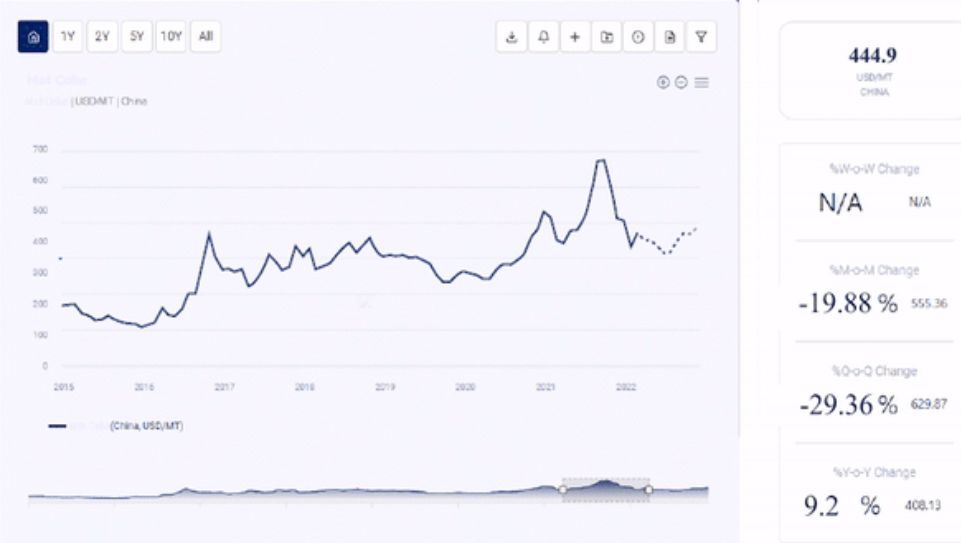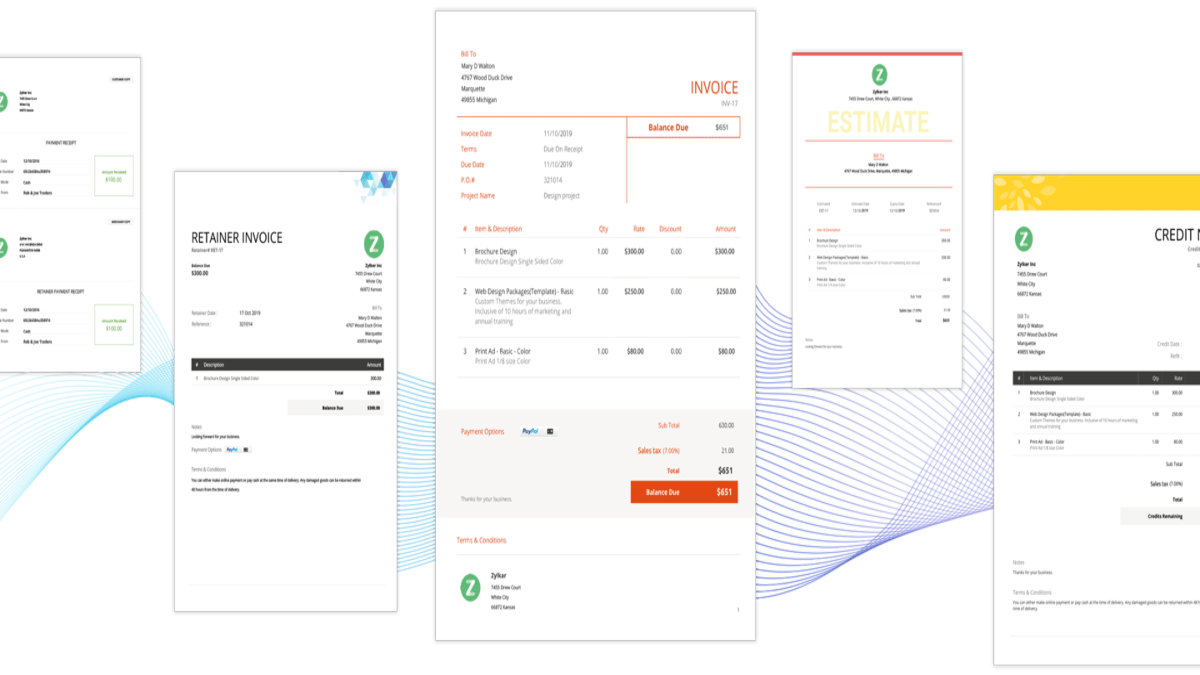Business
Procurement Resource Evaluates The Price Trends Of Sodium Chlorate In Its Latest Insights And Dashboard
| Report Features | Details |
| Product Name | Sodium Chlorate |
| Region/Countries Covered |
|
| Currency | US$ (Data can also be provided in local currency) |
| Customization Scope | The report can be customized as per the requirements of the customer |
| Post-Sale Analyst Support | 360-degree analyst support after report delivery |
Request for Real Time Sodium Chlorate Prices: https://www.procurementresource.com/resource-center/sodium-chlorate-price-trends/pricerequest
Sodium chlorate appears as a white, crystalline powder when it is dissolved in water. It is hygroscopic by nature. There are three different forms of sodium chlorate: dust, spray, and granules. At temperatures exceeding 300 °C, it breaks down, releasing oxygen while leaving salt chloride behind. It is produced in large quantities, especially for use in bleaching pulp to create high-brightness paper.
The process of creating sodium chlorate from sodium chloride is known as electrolysis. Salt is dissolved, then refined to get rid of impurities. Through the electrolyte system, the refined salt is dissolved in chlorate electrolytes. Further, HCL is added to the electrolyte before electrolysis. Hydrogen gas is created when chloride ions are oxidised on the anodes and water is reduced on the cathodes. Finally, a slurry of sodium chlorate crystals is released from the vacuum crystalliser.
The top exporters of sodium chlorate are Canada, Finland, France, the United States, and Sweden.
Key Details About the Sodium Chlorate Price Trend:
Procurement Resource does an in-depth analysis of the price trend to bring forth the monthly, quarterly, half-yearly, and yearly information on the Sodium Chlorate price in its latest pricing dashboard. The detailed assessment deeply explores the facts about the product, price change over the weeks, months, and years, key players, industrial uses, and drivers propelling the market and price trends.
Each price record is linked to an easy-to-use graphing device dated back to 2014, which offers a series of functionalities; customization of price currencies and units and downloading of price information as excel files that can be used offline.
The Sodium Chlorate pricing database, and analysis can prove valuable for procurement managers, directors, and decision-makers to build up their strongly backed-up strategic insights to attain progress and profitability in the business.
Industrial Uses Impacting Sodium Chlorate Price Trend:
 The major non-pesticidal application for sodium chlorate is as a precursor in chlorine dioxide generation via a closed system to bleach wood pulp/paper. It is also employed as an oxidizer in mfr dyes, explosives & matches, dyeing & printing fabrics, tanning and finishing leather, and pharmaceutic aid.
The major non-pesticidal application for sodium chlorate is as a precursor in chlorine dioxide generation via a closed system to bleach wood pulp/paper. It is also employed as an oxidizer in mfr dyes, explosives & matches, dyeing & printing fabrics, tanning and finishing leather, and pharmaceutic aid.
The pesticidal uses of sodium chlorate include agricultural uses as a defoliant/desiccant. Other than that, it is also utilised as an oxidizing agent and bleach for paper pulps. Moreover, it is also used in ore processing to make perchlorates and semi-permanent soil sterilant herbicides and also as a harvest aid
It also finds its application in the processing of uranium, rocket fuel oxidant, and as an intermediate for potassium chlorate & perchlorates. Toothpaste and mouthwashes and weedkillers are also a few applications of sodium chlorate, among others.
Key Market Players:
• Eka Chemicals,
• Erco Worldwide,
• Canexus,
• Kemira Oyj,
• China First Chemical Holdings Limited
News and Events:
• May 2021: Kemira Oy and UPM-kymmene Corp. agreed to a long-term agreement to increase their capacity for producing sodium chlorate and hydrogen peroxide in Uruguay. The new partnership includes the ability to maintain both the currently operating pulp mill in Fray Bentos and the 2.2 million tonnes under-construction pulp plant in Paso de Los Toros.
Related Reports:
- Sodium Hydroxide Price Trend – https://www.procurementresource.com/resource-center/sodium-hydroxide-price-trends
- Sodium Hypochlorite Price Trend – https://www.procurementresource.com/resource-center/sodium-hypochlorite-price-trends
- Sodium Lauryl Sulphate Price Trend – https://www.procurementresource.com/resource-center/sodium-lauryl-sulphate-price-trends
About Us:
Procurement Resource offers in-depth research on product pricing and market insights for more than 500 chemicals, commodities, and utilities updated daily, weekly, monthly, and annually. It is a cost-effective, one-stop solution for all your market research requirements, irrespective of which part of the value chain you represent.
We have a team of highly experienced analysts who perform comprehensive research to deliver our clients the newest and most up-to-date market reports, cost models, price analysis, benchmarking, and category insights, which help in streamlining the procurement process for our clientele. Our team track the prices and production costs of a wide variety of goods and commodities, hence, providing you with the latest and consistent data.
To get real-time facts and insights to help our customers, we work with a varied range of procurement teams across industries. At Procurement Resource, we support our clients, with up-to-date and pioneering practices in the industry, to understand procurement methods, supply chain, and industry trends, so that they can build strategies to achieve maximum growth.
Contact Us:
Company Name: Procurement Resource
Contact Person: Amanda Williams
Email: sales@procurementresource.com
Toll Free Number: USA & Canada – Phone no: +1 307 363 1045 | UK – Phone no: +44 7537 132103 | Asia-Pacific (APAC) – Phone no: +91 1203185500
Address: 30 North Gould Street, Sheridan, WY 82801, USA
Business
Mueller Settlement Amazon: Navigating the Legal Landscape

Learn more about the intricacies of the Mueller Settlement Amazon, the consequences for Amazon legally and how it affected the company’s image. Discover the background, the thoughts of experts, and the steps Amazon took to win back customer confidence. Learn all about this retail giant’s struggles, triumphs, and plans for the future.
Introduction
Much attention has been focused on the Mueller settlement with Amazon in the intricate e-commerce industry. This article examines the origins, legal ramifications, and influence on Amazon’s reputation of this deal, among other complexities.
Understanding Mueller Investigation
What is Mueller Settlement Amazon?
A number of Amazon’s business activities were the subject of the inquiry that led to the Mueller settlement. To fully realise the implications of the settlement, it is vital to understand where this inquiry came from.
Significance of the Settlement
Understanding the settlement’s utmost significance in the business realm requires delving into the conclusions of the Mueller investigation and Amazon’s participation.
Legal Implications
Mueller Report Overview
A synopsis of the Mueller report explains the complex legal landscape that Amazon faced. To grasp the seriousness of the settlement, it is necessary to unravel the main conclusions and what they mean.
Amazon’s Legal Responses
In responding to the claims made in the Mueller report, Amazon’s legal staff was helpful. In this part, we will take a look at the methods Amazon used to protect its interests.
Settlement Details
Terms and Conditions
To further understand what Amazon was required to do, it is helpful to review the settlement agreement’s terms and conditions. Understanding the breadth of the settlement requires uncovering the financial ramifications for Amazon.
Impact on Amazon’s Reputation
Public Perception
Public opinion may have just as much of an effect as a court of law. It is instructive to compare popular opinion of Amazon before, during, and after the settlement.
Media Coverage
The media’s coverage of the Mueller settlement was essential in establishing its narrative. The impact on Amazon’s reputation as a result of the media attention is examined in this section.
Amazon’s Response Strategy
Communication Tactics
It takes finesse to communicate at a settlement. To make sense of what happened next, you had to know how Amazon strategically conveyed its position.
Changes Post Settlement
After the payment, Amazon made certain adjustments to fix its reputation. Taking a look at these adjustments shows how seriously the organisation takes the idea of learning from the mistake.
Lessons Learned
Corporate Responsibility
Many people started talking about corporate accountability after the Mueller deal. In this part, we’ll look at what other companies, including Amazon, have learnt.
Future Implications for Companies
Companies may learn a lot about how to deal with future problems like this by looking at the bigger picture of how the settlement affected their actions.
Expert Opinions
Legal Experts’ Take
Views on the Mueller settlement were expressed by legal professionals. Gaining insight into their viewpoints enriches the examination.
Business Analysts’ Perspectives
Analysts from the business world provide light on the potential financial consequences. Gaining insight into their viewpoints allows for a more complete picture to be painted.
Mueller Settlement Amazon: A Timeline
Key Events
To make sense of what’s happening, it’s helpful to go over the major points of the Mueller deal in chronological order.
Milestones in the Settlement
Readers may easily follow the events that had place by locating key points in the settlement chronology.
Consumer Trust Regained
Measures Taken by Amazon
Amazon did some things to win back the confidence of its customers. By breaking down these steps, we can see how seriously the business takes its consumers’ needs.
Customer Feedback
It is critical to pay close attention to what customers have to say. To gauge the success of Amazon’s campaigns, it is helpful to examine consumer comments made after the settlement.
Positive Outcomes
Changes in Corporate Practices
As a result of the Mueller settlement, Amazon revised and updated certain of its business policies. Looking at these developments highlights the benefits of the settlement.
Industry-wide Impact
Beyond Amazon, the settlement’s effects were felt. The effects of the settlement on the industry as a whole are discussed in this section.
Challenges Faced
Internal Struggles
Both during and after the settlement, Amazon encountered difficulties internally. The larger story gains depth from an appreciation of these challenges.
External Backlash
Amazon faced criticism from other sources. Managing a company’s reputation after a settlement is complicated, but it becomes clearer when you look at the external issues.
Success Stories Post Settlement
Amazon’s Growth
The fact that Amazon has continued to grow since the settlement shows how resilient the corporation is. A positive outlook might be gained by delving into this growth tale.
Positive Repercussions
One way to look at the bright side of things is to consider the good things that have come out of the settlement.
The Future of Amazon
Sustainability Efforts
After the settlement, Amazon made sustainability an even bigger priority. By delving into these initiatives, we can better understand the firm’s dedication to ethical business practices.
Ongoing Commitment
The commitment of Amazon to learning from the settlement and making wise adjustments will determine its future.
Conclusion
Last but not least, the path to a Mueller deal with Amazon has been one of profound change. To better overcome obstacles, organisations would do well to understand the legal, reputational, and operational ramifications.
FAQs
Is the Mueller settlement a setback for Amazon’s growth?
Amazon overcame obstacles presented by the settlement and continued to develop as a result.
How did the public react to the settlement?
Both proponents and detractors of the idea voiced differing views in response to the public outcry.
Were there long-term consequences for Amazon?
Improvements in corporate responsibility and shifts in business practices were among the long-term effects.
Business
10 Top Photo Tiles, Wall Art, and Canvas Prints Companies

Introduction
In today’s digital age, we capture countless moments with our cameras and smartphones, but often these memories remain trapped in the digital realm. Fortunately, there are companies that specialize in turning your cherished photos into stunning pieces of art that you can proudly display in your home. From photo tiles to canvas prints, these companies offer a wide range of options to transform your memories into beautiful decor. In this article, we’ll explore the top 10 companies that excel in this field, with special mention to Wallpics, a standout choice.
-
Shutterfly
Shutterfly has long been a household name in the world of personalized photo products. They offer an array of options, including canvas prints, framed prints, and acrylic prints, allowing you to transform your photos into elegant wall art. Shutterfly’s user-friendly website and customization tools make it easy to create personalized pieces that suit your style.
-
CanvasPop
CanvasPop is known for its high-quality canvas prints. They use premium materials and advanced printing techniques to ensure your photos are reproduced with vivid colors and sharp details. CanvasPop offers a range of customization options, allowing you to choose the perfect size and frame to match your decor.
-
Mixtiles
Mixtiles specializes in photo tiles, making it easy to create a unique wall display. Their peel-and-stick tiles are not only convenient to install but also offer a modern and sleek look. You can rearrange them easily, ensuring your wall art is always fresh and appealing.
-
Printique
Formerly known as AdoramaPix, Printique is a trusted name in the world of photography. They offer a variety of printing options, including canvas prints and metal prints, all of which are known for their exceptional quality. With Printique, you can be confident that your photos will be turned into beautiful works of art.
-
Easy Canvas Prints
As the name suggests, Easy Canvas Prints makes the process of creating canvas prints a breeze. Their user-friendly website guides you through the customization process, allowing you to choose from various sizes, frames, and even image enhancements. The result is stunning canvas art that’s delivered to your doorstep.
-
CanvasDiscount
CanvasDiscount is known for its affordable canvas prints without compromising on quality. They frequently run promotions and offer competitive pricing, making it a budget-friendly option for transforming your photos into canvas art. Despite the lower prices, the quality of their prints remains impressive.
-
Nations Photo Lab
Nations Photo Lab is a professional-grade photo printing service that offers a wide range of products, including canvas prints and metal prints. They are known for their attention to detail and color accuracy, ensuring your photos are faithfully reproduced. Nations Photo Lab is a popular choice among photographers and art enthusiasts.
-
Great Big Canvas
Great Big Canvas specializes in large-format art prints that can make a bold statement in your home. Their collection includes a wide range of styles, from contemporary to classic, ensuring there’s something for everyone. Whether you want to showcase your own photos or explore their vast library of artwork, Great Big Canvas has you covered.
-
Fracture
Fracture takes a unique approach to photo printing by directly printing your images on glass. The result is a sleek and modern look that enhances the vibrancy of your photos. Their minimalist design and easy-to-hang system make it simple to transform your photos into eye-catching wall art.
-
Wallpics
Last but not least, Wallpics deserves a special mention on this list. Wallpics offers a distinctive and creative way to display your photos as wall art. They specialize in photo tiles that can be easily arranged and rearranged on your wall. With Wallpics, you have the flexibility to create your own unique photo collages and arrangements, adding a personal touch to your decor.
Conclusion
Turning your favorite photos into beautiful wall art has never been easier, thanks to the top-notch companies mentioned in this article. From canvas prints to photo tiles, these companies offer a variety of options to suit your style and budget. Whether you’re looking for professional-grade quality or a budget-friendly solution, you can trust these companies to transform your cherished memories into stunning pieces of art. And with Wallpics’ creative approach to photo tiles, you have the freedom to design your own unique wall display that tells your story in a truly personalized way. So, don’t let your precious memories stay hidden on your devices; turn them into beautiful art pieces that you can enjoy every day.
Business
Top 8 Invoice Generator Software for Freelancers, Small Businesses, and Professional Contractors

Introduction:
In today’s rapidly evolving business world, the demand for efficient tools to manage financial transactions and streamline operations has never been greater. Freelancers, small businesses, and professional contractors all require effective invoice generator software to create professional invoices and ensure timely payments. In this article, we present a new list of the top 8 invoice generator software solutions, with a focus on Zintego, an innovative invoicing tool that can revolutionize your billing process.
-
QuickBooks Online:
QuickBooks Online by Intuit is a highly popular cloud-based accounting software suitable for freelancers and small businesses. It offers a robust invoicing module with customizable templates, expense tracking, and online payment capabilities. QuickBooks Online also integrates seamlessly with various third-party applications.
-
Xero:
Xero is another cloud-based accounting software that excels in invoicing. It provides customizable invoices, expense management, and multi-currency support. Xero’s intuitive interface and automation features make it an excellent choice for small businesses and professional contractors.
-
FreshBooks:
FreshBooks is a user-friendly invoicing and accounting software tailored for freelancers and small businesses. It offers automatic payment reminders, expense tracking, and client management. FreshBooks also provides a time tracking feature and supports multiple payment gateways.
-
Zoho Invoice:
Zoho Invoice, part of the Zoho suite of business software, offers comprehensive invoicing features. Users can access customizable templates, time tracking, expense management, and online payment processing. Zoho Invoice integrates seamlessly with other Zoho applications, providing a holistic business management solution.
-
Wave:
Wave is a free invoicing and accounting software ideal for freelancers and small businesses on a tight budget. Despite its cost-free nature, Wave offers essential features such as invoice customization, expense tracking, and secure payment processing. Additional paid add-ons are available for advanced functionality.
-
Hiveage:
Hiveage is an all-in-one invoicing and billing solution designed for freelancers, small businesses, and professional contractors. It offers customizable invoicing templates, expense tracking, and time billing. Hiveage also includes robust reporting features to help users gain insights into their financial performance.
-
Invoice2go:
Invoice2go is a straightforward invoicing software that caters to the needs of small businesses and professional contractors. It provides customizable invoice templates, expense tracking, and online payment acceptance. Invoice2go also offers a mobile app for on-the-go invoicing.
-
Zintego – A Game-Changing Invoice Generator:
Among the top invoicing software options, Zintego deserves special attention. Zintego has rapidly gained recognition for its innovative approach to invoicing. Here are some standout features that make Zintego a valuable addition to this list:
- Smart Automation: Zintego leverages smart automation to simplify the invoicing process. It can automatically generate recurring invoices, saving time and ensuring consistent billing for retainer clients or subscription-based services.
- Customizable Templates: Zintego provides a range of customizable invoice templates, enabling users to create invoices that match their brand identity. You can easily add your logo, adjust colors, and customize the layout to your liking.
- Expense Tracking: The software includes expense tracking features, allowing users to monitor business expenditures effortlessly. Expenses can be categorized, receipts attached, and detailed expense reports generated for better financial management.
- Multi-Currency Support: Zintego understands the needs of international businesses and offers multi-currency support, making it easy to invoice clients in their preferred currency.
- Payment Integration: Zintego integrates seamlessly with popular payment gateways, facilitating online payments and reducing payment delays.
- Client Management: Zintego assists in managing client information, providing quick access to contact details, transaction history, and outstanding balances. This feature is invaluable for maintaining strong client relationships.
- Mobile Accessibility: With the Zintego mobile app, users can create and send invoices from anywhere, ensuring flexibility and efficiency in their invoicing process.
- Data Security: Zintego prioritizes data security by employing encryption and secure protocols to protect financial information, ensuring the utmost confidentiality for users and their clients.
Conclusion:
Invoicing plays a pivotal role in the success of freelancers, small businesses, and professional contractors. The right invoice generator software can simplify invoicing, enhance professionalism, and boost cash flow. While established solutions like QuickBooks Online, Xero, and FreshBooks offer robust features, Zintego’s innovative approach and user-friendly interface make it a compelling choice.
As businesses continue to evolve, having a reliable invoicing tool like Zintego can make a significant difference in managing finances efficiently and nurturing client relationships. Explore these options to find the software that best fits your invoicing needs and helps your business thrive in today’s competitive landscape.
-

 Social Media7 months ago
Social Media7 months agoWho is Rouba Saadeh?
-

 Social Media7 months ago
Social Media7 months agoMati Marroni Instagram Wiki (Model’s Age, Net Worth, Body Measurements, Marriage)
-

 Entertainment7 months ago
Entertainment7 months ago12 Online Streaming Sites that Serve as Best Alternatives to CouchTuner
-

 Entertainment7 months ago
Entertainment7 months agoMovierulz Website: Movierulzz 2021 Latest Movies on Movierulz.com
-

 Social Media7 months ago
Social Media7 months agoBrooke Daniells: Everything About Catherine Bell’s Partner
-

 Entertainment7 months ago
Entertainment7 months ago4MovieRulz Download Telegu Movies | 3MovieRulz | Movierulz.com
-

 Guides7 months ago
Guides7 months agoHow to make selfies with Dorian Rossini
-

 Entertainment7 months ago
Entertainment7 months agoMangastream is Not Functional – How About Taking Alternative Online Movie Sites in 2021
